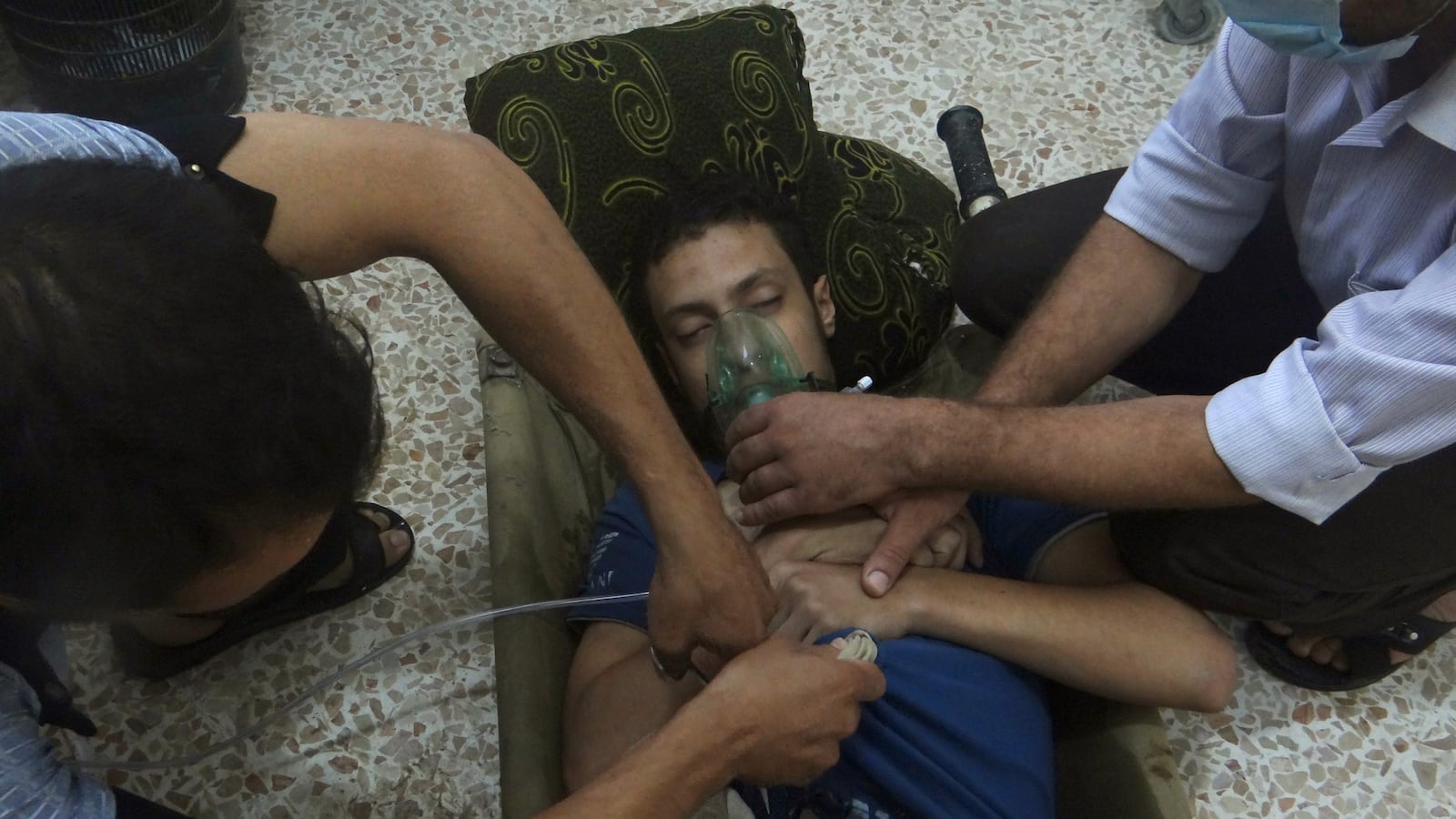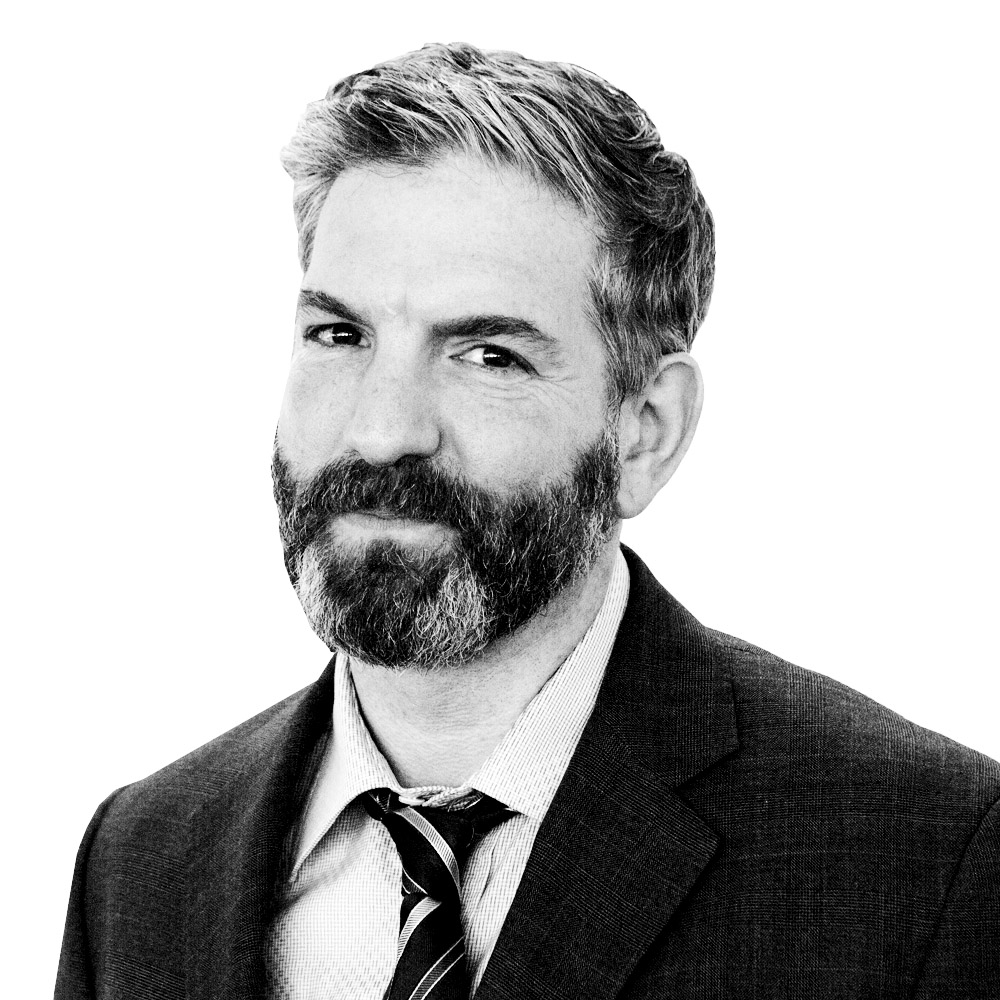Syria continues to develop chemical weapons it is supposed to have destroyed, and to use chlorine gas it agreed not to use on the battlefield. This, according to reports from United Nations agencies that have been leaked in recent days by Obama administration officials and were confirmed in part by public statements from U.S. officials on Wednesday and Thursday.
“It is now impossible to deny that the Syrian regime has repeatedly used industrial chlorine as a weapon against its own people,” said a statement from U.S. National Security Council spokesperson Ned Price. (Chlorine was the first gas used in the trenches of World War I. When it mixes with the moisture in human eyes and lungs, it turns to acid with potentially fatal effects.)
Also very disturbing is the conclusion in the same report that the so-called Islamic State has used sulfur mustard gas, which causes skin and lungs to blister painfully, or fatally.
These leaks and statements are part of an administration effort to put pressure on President Bashar al-Assad and his Russian backers before an Aug. 30 meeting by the U.N. Security Council to look at the issue of chemical weapons in Syria, a U.S. intelligence official told The Daily Beast.
Why now? According to this official, the answer goes back to 2014, when the Assad regime was accused of repeated chlorine attacks, and the world shrugged its shoulders.
“We weren’t getting enough political oomph when the chlorine attacks first came to light. So we figured the best option was to work through the slow UN process, get the Russians to a place where they’re cornered diplomatically,” the intelligence official said.
Plus, the official added, finger pointing by the United States alone wouldn’t be nearly as effective as collective action.
“You know the way the Russians treat anything Syria-related,” the official said. “If we bring it forward, the Russians would reject it out of hand. So we helped OPCW [the Organization for the Prohibition of Chemical Weapons] uncover it on its own."
In fact, the timing is politically problematic for President Barack Obama, and potentially for his favored successor, Hillary Clinton, since she is so closely identified with his administration.
We are looking at the third anniversary of Obama’s Great Syria Failure, as many of his critics see it: the debacle in which he drew a red line against the Syrian regime’s use of chemical weapons, and the regime stepped right across it, killing more than a 1,000 men, women, and children with sarin nerve gas on Aug. 21, 2013, in a Damascus suburb called Ghouta.
Days and then weeks of evident confusion followed, as Britain’s House of Commons bailed out of the planned multinational force bent on retribution, then Obama backtracked on plans to launch punitive attacks and put the issue before a pusillanimous Congress.
It was clear the American people had no stomach for a new Middle East war, and unclear just what the “limited, tailored” airstrikes planned by the administration might accomplish. Some American allies, notably the Saudis and the French, hoped those raids would open the door to an American intervention that could end the war, but that was never the administration’s plan.
In the event, the red line seemed to be fading away completely, along with Obama’s credibility, until, of all people, Russian President Vladimir Putin stepped in and pulled Obama’s chestnuts out of the fire.
At Moscow’s direction Assad agreed to join the Chemical Weapons Convention, and fessed up to the extensive program and arsenal he previously had denied he had.
An inspection regime was pulled together, and over the course of the next year all those weapons, manufacturing facilities and precursor chemicals that Damascus admitted to having were collected and destroyed.
But, as The Daily Beast reported in May 2014, there were strong suspicions that Assad had some elements of a chemical weapons program, and some chemical weapons, he hadn’t put on his declared inventory.
Privately, among officials at the OPCW in The Hague there was a common judgment that the vast majority of Assad’s chemical stockpile was indeed eliminated, but he might have kept enough of the sophisticated nerve agents to sow terror and buy time if he had to make a last-ditch stand. The feeling was that no certainty could be had that all the weapons were gone unless and until Assad is gone, but reasoning such as that, so close to the flawed rationale used for the disastrous invasion of Iraq in 2003, was not something anyone wanted to say publicly.
Still, we are looking at a situation today where the Obama administration has to confront the fact that its diplomatic coup of three years ago wasn’t so successful as it would like to claim.
A 75-page document attributed to the director general of the OPCW, Ahmet Uzumcu, has been seen in part by reporters for Foreign Policy, who published an article about in on Tuesday. According to the summary they read, most of 122 chemical samples taken at “multiple locations” in Syria “indicate potentially undeclared chemical weapons-related activities.” Moreover, the summary said many of Syria’s explanations “are not scientifically or technically plausible, and … the presence of several undeclared chemical warfare agents is still to be clarified.”
In a statement on Thursday, U.S. Ambassador to the United Nations Samantha Power, only too aware of critiques aimed at the Obama administration’s policies toward Syria, noted that “Three years after the horrendous chemical weapons attack in the opposition held town of Ghouta, the international community must act to hold accountable those who act in defiance of such fundamental international norms” as the prohibition of chemical weapons.
“When anyone—from any government or from any terrorist group—so flagrantly violates the global ban on chemical weapons use without consequences, it sends the signal that impunity reigns and it gravely weakens the counter-proliferation regime from which all of us benefit,” she said.
“It is essential that the members of the Security Council come together to ensure consequences for those who have used chemical weapons in Syria,” Power declared.
But while that was possible, in fact, in 2013, the chances of such action now are slim to none. Since then, confrontations over Russia’s actions in Ukraine have poisoned the relationship, and it’s been almost a year now since Putin committed Russian air power to the defense of the Assad government.
Whatever proof there is of Assad’s duplicity, it is not likely to sway Russian policy. And regardless of U.S. strategizing, leaks and statements, without Putin on board, no significant measure sanctioning will pass the Security Council.
Perhaps they can all get together to opposed the use of mustard gas by ISIS.
Perhaps.







